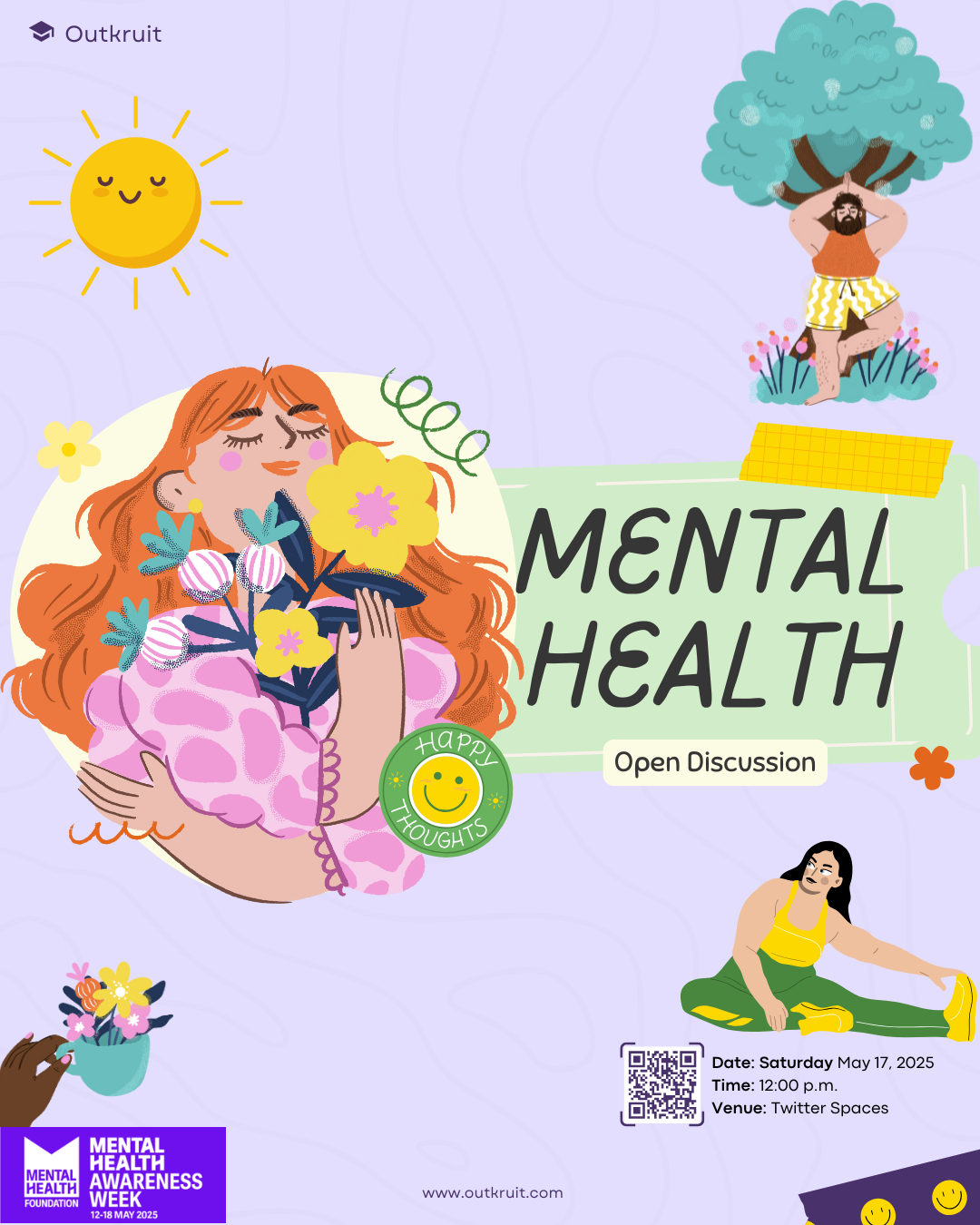At Outkruit, we believe that career growth and creativity thrive when we take care of our minds. Whether you're navigating study stress, job hunting, life transitions, or just trying to find balance—your mental health matters.
We’ve gathered practical tools, tips and guidance from the Mental Health Foundation to help you build healthy habits and stay grounded.
Top Mental Health Resources You Can Use Today
1. How to Look After Your Mental Health
A go-to guide with 10 simple ways to take care of your mental health—like staying connected, practicing mindfulness, and asking for help.
It encourages people to care for their mental health just as they would their physical health, by managing stress, building positive relationships, staying active, eating well, and seeking help when needed. The guide provides practical advice for navigating challenges like financial worries, housing, work, and major life changes. It also recognises that everyone’s mental health journey is different and offers tailored resources for specific groups, including young people and teachers.
2. Movement: Moving More for Mental Health
This year’s campaign theme is all about movement. Even light physical activity can improve your mood, reduce anxiety, and boost energy.
The Mental Health Foundation emphasises that regular movement significantly benefits mental health by reducing stress and anxiety, boosting mood and self-esteem, improving sleep, and enhancing overall wellbeing. Despite 82% of UK adults recognising these advantages, over a third do not meet the World Health Organization's recommended activity levels. Barriers such as lack of time, fatigue, and socioeconomic factors contribute to this inactivity. The Foundation advocates for integrating enjoyable and manageable physical activities into daily routines, highlighting that even short periods of movement, like a 10-minute walk, can positively impact mental health. They encourage finding personal "moments for movement" to support mental wellbeing.
Check out easy, no-pressure ways to bring more movement into your day.
3. How to Manage and Reduce Stress
Stress is part of life, but it doesn’t have to control us. This resource breaks down how to spot stress triggers and build coping strategies.
It explains that stress is a natural response to challenging situations, but prolonged or overwhelming stress can negatively impact mental and physical health. The guide recommends identifying the sources of stress, recognising how it affects you, and taking steps to manage it.
Key strategies include staying active, eating well, getting enough sleep, building supportive relationships, taking time to relax, and avoiding unhealthy coping mechanisms like excessive alcohol or caffeine. It also highlights the importance of managing your workload, setting realistic goals, and seeking professional help if stress becomes unmanageable. Ultimately, the guide encourages self-awareness and proactive self-care as essential tools in reducing stress and improving overall wellbeing.
4. Loneliness and Mental Health
Whether you're new to Nottingham or just feeling isolated, loneliness can affect us all. The Mental Health Foundation offers tips on making meaningful connections and understanding the impact of loneliness.
While anyone can experience loneliness, certain groups—such as young people, carers, individuals with disabilities, and those from minority communities—are at higher risk. The Foundation offers practical advice to combat loneliness, including engaging in meaningful activities, fostering connections with others, and seeking professional support when needed. They also provide tailored guides for specific groups, such as students and young parents, to address their unique challenges. Recognizing loneliness as a widespread issue, the Foundation advocates for societal awareness and collective efforts to reduce its stigma and prevalence.
5. Mental Health Tips for Young People
If you're a student or early in your career, this guide speaks directly to the unique pressures young people face—like uncertainty, body image, and social media. It encourages engaging in enjoyable activities, limiting exposure to negative news and social media, staying connected with others, and building a flexible daily routine. It highlights the importance of regular movement, self-compassion, and seeking support when needed—especially for those with existing mental health conditions.
For students and school leavers, the guide suggests online study groups, learning new skills, and communicating openly with teachers. It also addresses managing uncertainty, financial concerns, and discrimination, while reassuring young people that their self-worth is not defined by productivity.
Talk About It – You’re Not Alone
This week, we're also hosting a Twitter Space open discussion on mental health.
Come share your thoughts or just listen in.
👉 Join here
Final Thoughts
Mental health isn’t just something we think about once a year. It's something we build every day—with small steps, supportive communities, and the courage to reach out.
If you or someone you know is struggling, don't hesitate to seek help.
Visit mentalhealth.org.uk for more in-depth resources and links to support services.
Take care of your mind—you deserve it.




